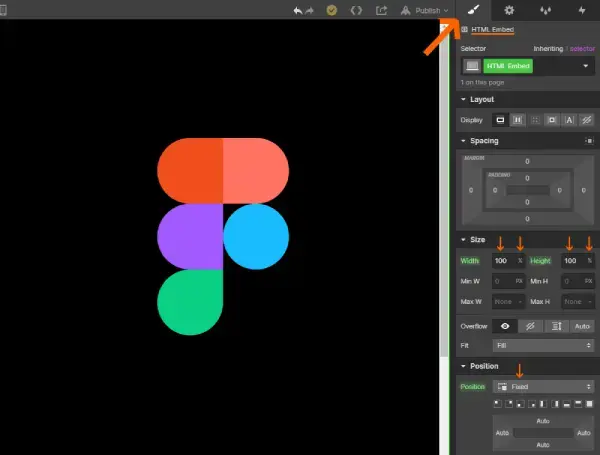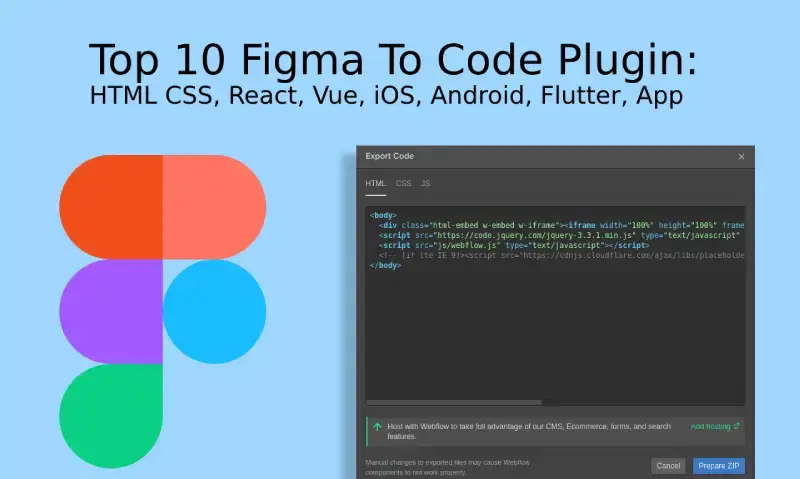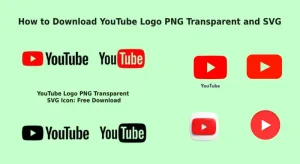The professional creation of web apps depends on making the transition from figma To code plugin work without problems. The largest figma desktop application offers several plugins to create usable figma To code from your designs. The plugins let designers work while developers maintain consistency and help the team produce design results faster. This blog post reviews the leading 10 Figma plugins that help transform designs into multiple code standards including HTML, Tailwind CSS, React, Vue, iOS, Android and Flutter. See more informative blogs
Table of Contents
Figma to HTML CSS Conversion
Our team at Themomarket converts your Figma designs into working and superior Figma To Code Plugin HTML and CSS code. Our Figma to HTML CSS service helps developers designers and companies reach their digital goals successfully.
Pixel-Perfect Conversion:
Our team converts your Figma designs into precise HTML and CSS while keeping the font and layout elements exactly as you specified.
Responsive Design:
Our responsive website development ensures your website works perfectly across any screen including PC desktops and all mobile devices.
Clean, Semantic Code:
Our coding team delivers code that is simple to understand and maintain while using effective HTML and CSS comments. A website becomes easier to locate and access online due to our optimization practices.
Cross-Browser Compatibility:
To create the best user experience we test our code across multiple web browsers so customers can use their designated browser.
Top 10 Figma To Code Plugin: Must Be Know

1) Anima
Anima stands out as the favorite Figma To Code Plugin because it produces responsive HTML together with CSS and React code while providing a Figma To code plugin. This tool makes sure developers create code that follows industry standards while handling challenging design requirements.
Key Features:
Responsive Design: It produces responsive HTML and CSS output.
Component-Based React Code: Anima turns Figma components into easy-to-reuse React components.
Interactive Elements: When you export from Figma it generates working buttons and form fields.
Advanced CSS: The system relies on Flexbox and Grid techniques to build web elements.
Anima makes it easy for developers to transform Figma designs directly into production-ready HTML or React code which handles complex interactive designs perfectly.
2) Figma to HTML by Builder.io
Key Features:
Clean HTML: The system provides HTML that follows web standards and uses semantic elements.
CSS Integration: Users can plug their own custom CSS rules to refine design aesthetics.
Responsive Design: The tool provides effortless handling of responsive screen sizes.
Web professionals build better landing pages and basic sites thanks to this Figma converter which delivers clean HTML and CSS outputs.
3) Figma to Code
This versatile plugin lets you create code from Figma using the React, Vue, and Angular frameworks. Users appreciate its helpful interface while it offers detailedHTML transformation tools.
Key Features:
Multi-Framework Support: It creates programming code for React, Vue, and Angular development.
Component Export: Figma transforms design components into ready-to-use code components.
State Management: The tool includes simple ways to manage state information when it creates code.
JavaScript developers work smoothly across different frameworks thanks to this plugin which helps them create consistent component-based development solutions.
4) Bravo Studio
Bravo Studio converts Figma designs into fully functioning smartphone applications for both Android and iOS platforms. To simplify app development the tool enables transition between design and mobile application creation methods.
Key Features:
Native Mobile Apps: The tool generates native iOS and Android programming from Figma designs.
Interactive Prototypes: The tool maintains all interactive features from Figma prototypes.
Backend Integration: The tool connects to APIs to infuse live data into projects.
National app designers and developers who want to create native applications fast should choose this tool because it helps eliminate programming tasks.
5) Figma to Flutter
The Figma to Flutter plugin lets developers turn their designs into Flutter code faster by using the platform’s modern cross-platform mobile creation tools.
Key Features:
Dart Code Generation: Users can now generate Dart code from their Figma designs thanks to this conversion tool.
Widgets and Layouts: The system generates Flutter widgets while preserving the original design layout.
Responsive Design: The platform adapts apps to display correctly on any mobile device type.
Dependable aid for Flutter professionals to transform Figma designs into working Flutter code efficiently.
6) Supernova
Supernova transforms Figma designs into workable code for HTML and both React and Flutter platforms at once.
key Features:
Multi-Platform Support: The tool creates HTML/CSS web code plus output for React and Flutter applications.
Design System Integration: Our platform works with design system tools to help teams keep design standards consistent.
Interactive Elements: The system turns real-time component functionality into usable results.
By connecting Figma designs to different platforms teams can maintain consistent look-and-feel across both web and mobile applications while using design systems.
7) TeleportHQ
TeleportHQ builds HTML and CSS in Tailwind.js alongside React code from your Figma designs using their visual design environment. Its main advantage is design customization and adaptability.
Key Features:
Visual Development: Lets users create changes simply by moving elements with their mouse.
Code Export: The tool generates HTML while supporting Tailwind CSS and React development.
Responsive Layouts: The system produces digital code that responds naturally to users.
Developers can visualize their Figma designs without limitations before generating code through this tool.
8) Figma to Vue
This plugin serves Vue.js developers by producing Vue components from Figma To code plugin designs to make development quicker.
Key Features:
Vue Component Generation: This plugin creates Vue components from your Figma versioned elements.
State and Props: The system controls state values and updates properties of GitHub Repo.
Responsive Design: The plugin adjusts the layout of Vue components to respond properly to different user devices.
Designing Figma files into Vue.js projects requires this plugin which helps professional developers work faster.
9) Locofy.ai
Locofy.ai converts your Figma designs into both HTML and Tailwind CSS while also creating React code to preserve design quality and optimize performance.
Key Features:
High-Fidelity Code: Our system verifies the output code remains consistent with the original design plan.
Tailwind CSS Integration: Our service connects Tailwind CSS to create efficient style implementations.
Component-Based Code: Our solution provides building blocks that developers can reuse for multiple projects.
The product suits developers needing Tailwind CSS code generation for detailed design migration without performance complications.
10) Zeplin
Though Zeplin is not a direct code converter it plays an important part in helping design and development connect. The platform provides complete design guidelines plus ready-to-use assets so developers can create their code manually.
Key Features:
Design Specs: Delivers comprehensive design facts and size details.
Code Snippets: Delivers ready-to-use coding blocks in each format including CSS, HTML and JavaScript.
Collaboration Tools: Designers and developers work better together through this system.
This tool suits teams who want to perform coding manually yet want clear design standards to achieve exact and reliable output.
Conclusion
Moving directly from figma to code plugins used to be tough until Figma to Code plugins brought us better results. Every single plugin in this list brings unique tools that help designers and developers work together. The Figma to Code plugins help developers work faster while producing fewer errors and keeping designs consistent across all programming languages.
You will develop better teamwork and achieve better results across your entire development process from this technology adoption. You and your teammates can transform your development methods no matter which scenario you work in.




